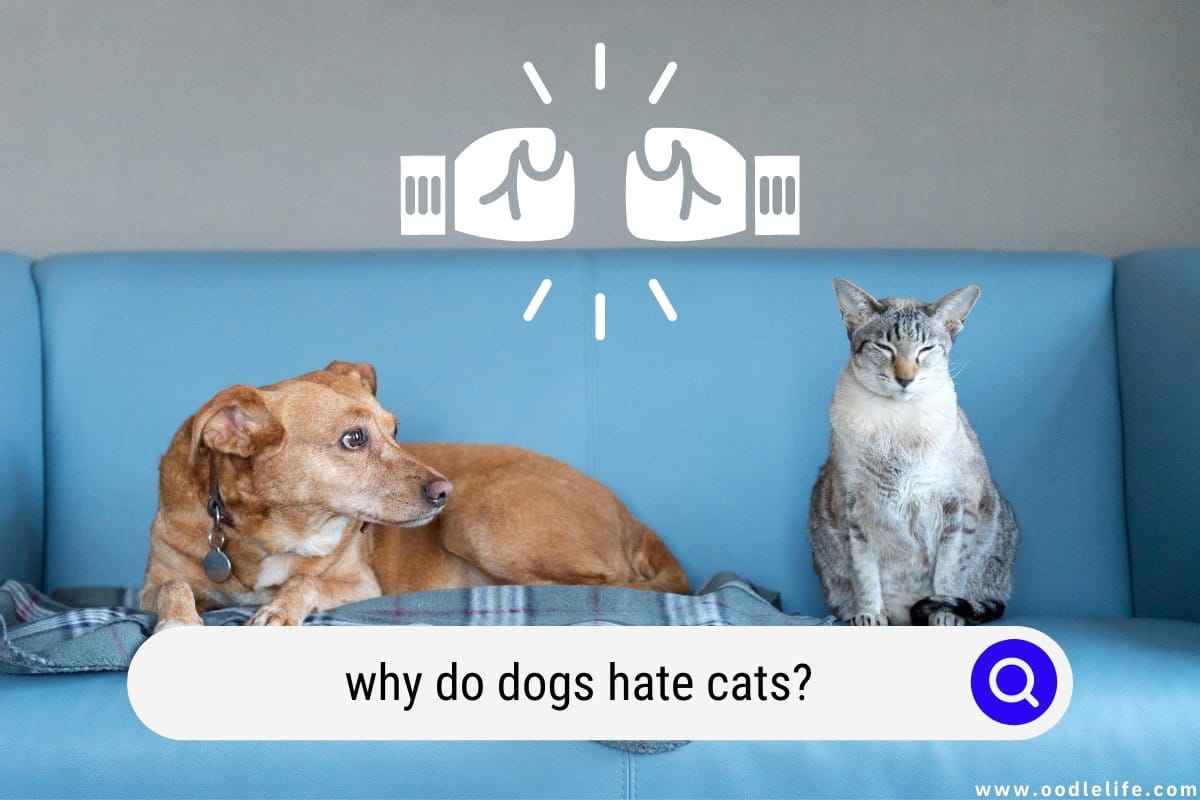Many people adore dogs, celebrating them as loyal companions and family members. However, for some individuals, the question "why I hate dogs" resonates deeply. This article delves into the reasons behind this sentiment, exploring both personal experiences and scientific insights. By understanding these perspectives, we can foster empathy and bridge the gap between dog lovers and those who feel differently.
While the global dog population continues to grow, not everyone shares the same enthusiasm for these animals. For some, the dislike stems from past experiences, while others have legitimate concerns about behavior, health, and lifestyle. This article aims to provide a balanced view, ensuring that both sides of the argument are respected.
Through this exploration, we hope to create an environment where people can openly discuss their feelings about dogs without judgment. Whether you love or dislike dogs, this article offers valuable insights into why some people feel the way they do.
Read also:Caramel Short Brown Hair With Highlights A Comprehensive Guide To Achieve This Trendy Look
Table of Contents
- Reasons Why People Hate Dogs
- Allergies and Health Issues
- Problematic Dog Behavior
- Noise and Disturbance
- Cleanliness Concerns
- Negative Past Experiences
- Cultural and Social Factors
- A Scientific Perspective on Dog Dislike
- Exploring Alternatives to Dogs
- Conclusion: Bridging the Gap
Reasons Why People Hate Dogs
Understanding why someone might say "why I hate dogs" requires a nuanced approach. While dogs are often praised for their loyalty and companionship, there are valid reasons why some individuals feel negatively toward them. Below, we explore several key factors that contribute to this sentiment:
1. Personal Preferences
Personal preferences play a significant role in how people perceive dogs. For some, the idea of owning a pet simply doesn't align with their lifestyle or values. Others may prefer cats, birds, or even no pets at all. These preferences are often shaped by upbringing, cultural background, and individual experiences.
2. Practical Concerns
Practical concerns such as time commitment, financial costs, and maintenance requirements can deter people from enjoying dogs. Caring for a dog involves feeding, grooming, exercise, and veterinary care—all of which require dedication and resources.
According to a study published in the Journal of Applied Animal Welfare Science, the average cost of owning a dog can exceed $1,000 annually, depending on the breed and size.
Allergies and Health Issues
Allergies are one of the most common reasons why people express dislike for dogs. Many individuals suffer from pet allergies, which can cause symptoms such as sneezing, itching, and respiratory issues. Even hypoallergenic breeds may not be suitable for everyone, as allergens are often present in dander, saliva, and urine.
- Allergens from dogs can linger in carpets, furniture, and clothing.
- People with asthma may experience worsened symptoms due to exposure to dog allergens.
- Regular cleaning and grooming can help reduce allergen levels in the home.
Problematic Dog Behavior
Problematic behavior is another factor that contributes to the dislike of dogs. Aggression, barking, and destructiveness can create tension in households and communities. While training and socialization can mitigate these issues, not all dogs respond positively to such efforts.
Read also:Maybelline Lipstick Colour Your Ultimate Guide To Stunning Shades
Aggression
Aggressive behavior in dogs can be frightening and dangerous, especially for children or those unfamiliar with animals. According to the Centers for Disease Control and Prevention (CDC), approximately 4.5 million dog bites occur in the United States each year, with children being the most common victims.
Barking
Excessive barking is a frequent complaint among neighbors and community members. While barking is a natural behavior for dogs, it can become disruptive when left unchecked. Training and environmental adjustments can help address this issue, but it requires patience and consistency.
Noise and Disturbance
Noise pollution caused by dogs is a growing concern in urban and suburban areas. Barking, whining, and other vocalizations can disrupt the peace and quiet that many people value. In addition to barking, dogs may engage in other noisy behaviors, such as scratching or whining at doors and windows.
Community Impact
In shared living spaces, such as apartment complexes or neighborhoods, noise from dogs can lead to conflicts between residents. Property managers and homeowners' associations often receive complaints about dog-related disturbances, highlighting the need for responsible pet ownership.
Cleanliness Concerns
Cleanliness is a significant concern for those who dislike dogs. Dogs can track dirt, mud, and other substances into the home, requiring frequent cleaning and maintenance. Additionally, dogs may shed excessively, leaving hair on furniture, clothing, and floors.
- Regular grooming can help reduce shedding and improve overall cleanliness.
- Investing in pet-friendly cleaning products can make maintenance easier.
- Training dogs to stay off furniture can help preserve household cleanliness.
Negative Past Experiences
Negative past experiences with dogs can shape a person's perception and contribute to their dislike. Traumatic events, such as being bitten or chased by a dog, can leave lasting impressions. Similarly, growing up in a household where dogs were poorly treated or neglected can instill a negative view of these animals.
Childhood Memories
Childhood experiences with dogs can have a profound impact on how individuals feel about them later in life. For example, a child who was bitten by a dog may grow up fearing or disliking all dogs, regardless of breed or temperament.
Cultural and Social Factors
Cultural and social factors also influence why people might say "why I hate dogs." In some cultures, dogs are not considered suitable companions or may even be viewed as unclean. These beliefs can shape attitudes and behaviors toward dogs, creating a divide between those who embrace them and those who reject them.
Religious Beliefs
Religious teachings in certain cultures discourage or prohibit the ownership of dogs. For example, in some Islamic traditions, dogs are considered impure, and contact with them requires specific cleansing rituals. These beliefs can lead to a cultural aversion to dogs, even among those who do not practice the religion.
A Scientific Perspective on Dog Dislike
From a scientific perspective, dislike for dogs can be explained through psychological and evolutionary theories. Some researchers suggest that negative associations with dogs may stem from evolutionary survival mechanisms, where humans learned to fear animals that posed a threat. Others point to personality traits, such as introversion or neuroticism, as potential predictors of dog aversion.
A study published in the Journal of Personality and Social Psychology found that individuals with high levels of neuroticism were more likely to express dislike for dogs, citing reasons such as fear, anxiety, and discomfort.
Exploring Alternatives to Dogs
For those who dislike dogs but still desire companionship, there are alternative pets that may be more suitable. Cats, fish, birds, and small mammals like rabbits or guinea pigs offer companionship without the challenges associated with dog ownership. Each of these animals has unique characteristics and care requirements, so it's important to research thoroughly before making a decision.
Cats as an Alternative
Cats are often seen as a more independent and low-maintenance alternative to dogs. They require less attention and exercise, making them ideal for individuals with busy lifestyles. However, cats also have their own set of challenges, such as litter box maintenance and scratching behavior.
Conclusion: Bridging the Gap
In conclusion, the sentiment of "why I hate dogs" is multifaceted and rooted in a variety of factors, including personal preferences, health concerns, behavior issues, and cultural influences. By acknowledging these perspectives, we can foster greater understanding and empathy between dog lovers and those who feel differently.
We invite you to share your thoughts and experiences in the comments below. Whether you love or dislike dogs, your voice matters in creating a more inclusive and informed community. Additionally, feel free to explore other articles on our site for further insights into pet-related topics.


